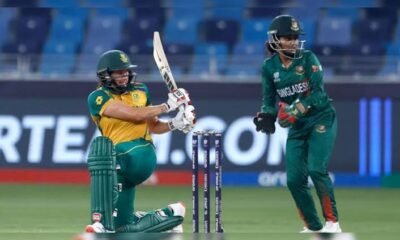The Nigerian government says the country’s telecommunications industry ’s contribution to the nation’s Gross Domestic Product (GDP) risen to 16 per cent, citing second quarter 2023 data.
According to data released by the Nigerian Communications Commission (NCC), based on computation by the Nigeria Bureau of Statistics (NBS), the contribution made by the sector increased from 14.13 per cent in the first quarter of 2023, up from 15 per cent, which was an all-time-high record in the second quarter of 2022, to 16 per cent in second quarter 2023, which is now a new record.
The Executive Vice Chairman of NCC, Prof. Umar Danbatta, who disclosed this in a keynote address delivered at the annual Telecom Executives and Regulators Forum (TERF) hosted by the Association of Telecom Companies of Nigeria (ATCON) in Lagos, said the sector was looking forward to increasing its contribution to Nigeria’s GDP before the end of the last quarter of the year.
“Through sustained regulatory excellence and operational efficiency by the Commission, the industry has grown in leaps and bounds over the past two decades and this has impacted on all other sectors of the economy,” Danbatta told the audience made up of executives of telecom companies and other industry stakeholders.
“The effective regulatory regime emplaced by the NCC and with the support from all stakeholders has been our major success factor as an industry,” he said.
According to the Executive Vice Chairman, from about 8 per cent contribution to GDP in 2015, when he came on board, the sector’s contribution has increased significantly to reach its current threshold of 16 per cent and that this has continued to positively impact all aspects of the economy.
He added that while there were barriers to broadband deployment in the country, ranging from the issue of right of way (RoW), fibre cuts, high capital requirement for deployment, multiple taxations and regulations, among other challenges, the NCC was navigating regulatory complexities, digital divide and literacy, security concerns with firmness, and increased collaborations with necessary stakeholders such as ATCON to create measures towards tackling the challenges.
Nigeria’s telecom industry now contributes 16% to GDP
The Nigerian government says the country’s telecommunications industry ’s contribution to the nation’s Gross Domestic Product (GDP) risen to 16 per cent, citing second quarter 2023 data.
According to data released by the Nigerian Communications Commission (NCC), based on computation by the Nigeria Bureau of Statistics (NBS), the contribution made by the sector increased from 14.13 per cent in the first quarter of 2023, up from 15 per cent, which was an all-time-high record in the second quarter of 2022, to 16 per cent in second quarter 2023, which is now a new record.
The Executive Vice Chairman of NCC, Prof. Umar Danbatta, who disclosed this in a keynote address delivered at the annual Telecom Executives and Regulators Forum (TERF) hosted by the Association of Telecom Companies of Nigeria (ATCON) in Lagos, said the sector was looking forward to increasing its contribution to Nigeria’s GDP before the end of the last quarter of the year.
“Through sustained regulatory excellence and operational efficiency by the Commission, the industry has grown in leaps and bounds over the past two decades and this has impacted on all other sectors of the economy,” Danbatta told the audience made up of executives of telecom companies and other industry stakeholders.
“The effective regulatory regime emplaced by the NCC and with the support from all stakeholders has been our major success factor as an industry,” he said.
According to the Executive Vice Chairman, from about 8 per cent contribution to GDP in 2015, when he came on board, the sector’s contribution has increased significantly to reach its current threshold of 16 per cent and that this has continued to positively impact all aspects of the economy.
He added that while there were barriers to broadband deployment in the country, ranging from the issue of right of way (RoW), fibre cuts, high capital requirement for deployment, multiple taxations and regulations, among other challenges, the NCC was navigating regulatory complexities, digital divide and literacy, security concerns with firmness, and increased collaborations with necessary stakeholders such as ATCON to create measures towards tackling the challenges.

 Metro2 days ago
Metro2 days ago
 Sports1 day ago
Sports1 day ago
 Musings From Abroad2 days ago
Musings From Abroad2 days ago
 Metro1 day ago
Metro1 day ago
























